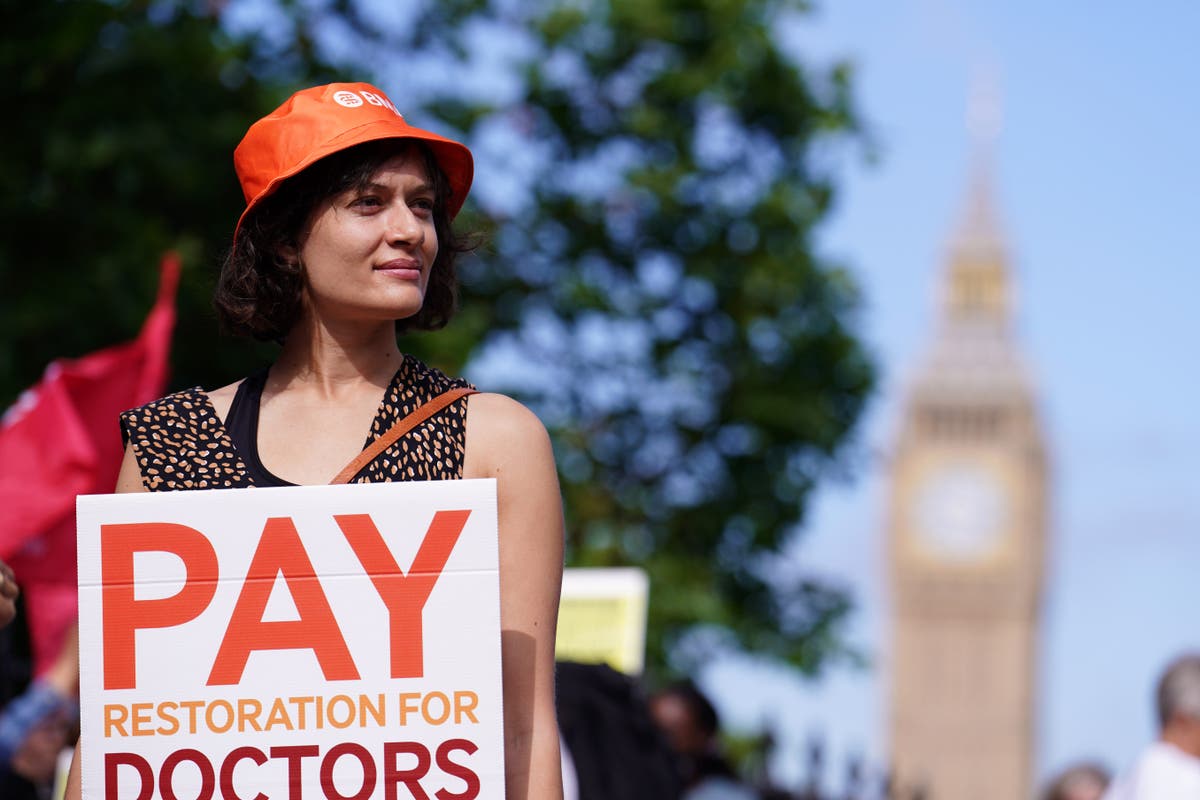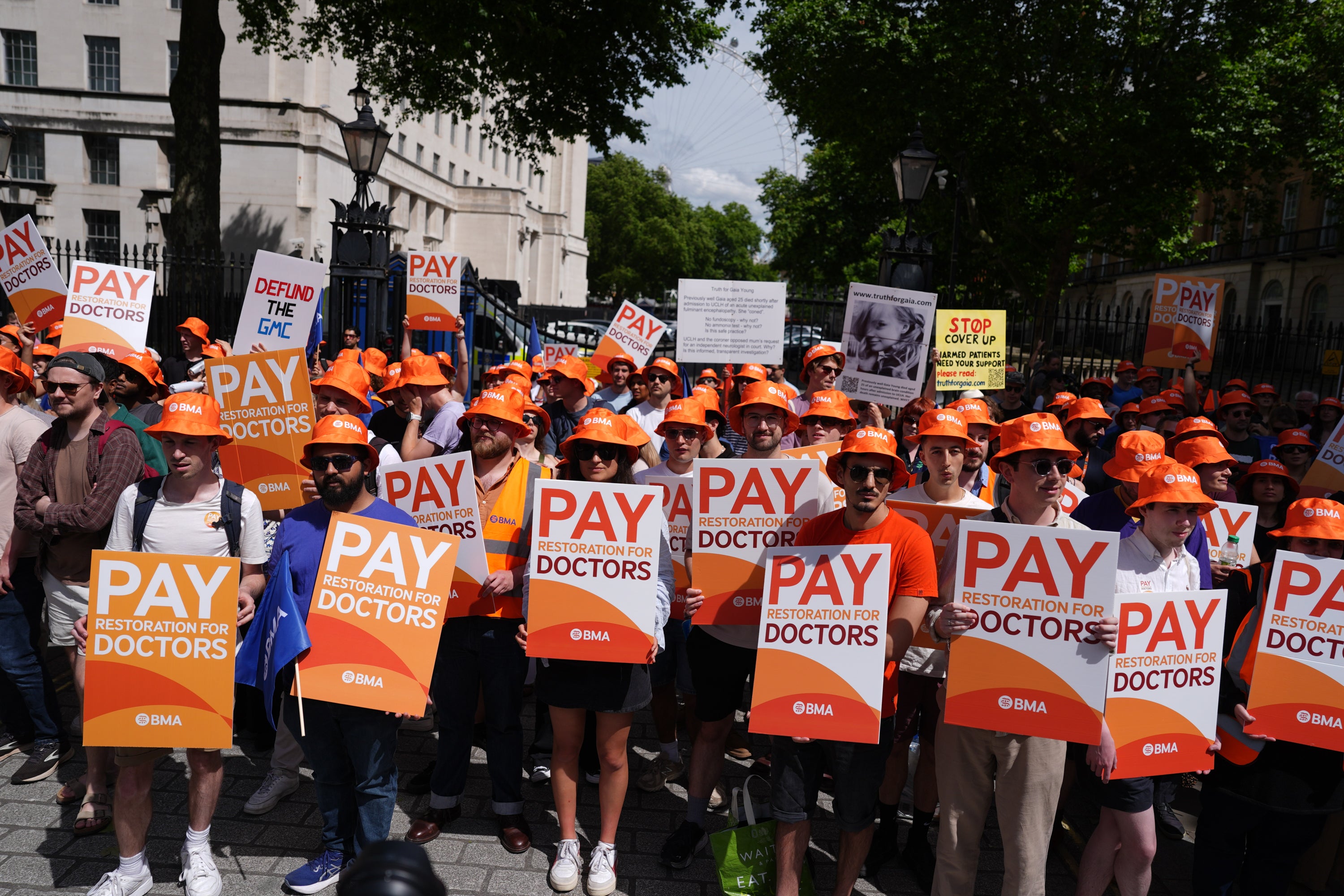Hospitals have to “pick up the pieces” after the end of the junior doctors’ strike

Healthcare leaders have warned that strikes in the UK’s NHS “must not become the status quo” as junior doctors in England return to work after a five-day walkout.
According to experts, patients bear the brunt of the conflict because the delays caused by rescheduling appointments cause them “pain or discomfort.”
Tens of thousands of appointments, procedures and operations are expected to have been postponed as a result of industrial action by members of the British Medical Association (BMA).
NHS leaders said hospitals would now have to “pick up the pieces” while staff worked to reschedule all appointments lost during the strike days.
Harmful and demoralising strikes must not become the status quo for the NHS and patients.
Saffron Cordery, Deputy Chief Executive NHS Providers
Officials are expected to confirm the number of postponed appointments on Friday, a day after voters go to the polls in the general election.
Both the Conservatives and Labour have promised to resume talks with the BMA’s Junior Doctors Committee if they come to power.
Health Secretary Victoria Atkins promised to “return to the negotiating room immediately after the election”, while Labour’s shadow health secretary Wes Streeting announced he would speak to the BMA on July 5.
Leading health experts called for a rapid end to the long-running conflict.

Matthew Taylor, chief executive of the NHS Confederation, said the impact of the strike would be felt “for some time to come”, adding: “We know that tens of thousands of operations and appointments have probably been cancelled.”
“Now healthcare leaders and their teams must start picking up the pieces by re-planning all of this so that patients can get the treatments they so desperately need.
“It is important to remember that it is patients who bear the brunt of this ongoing conflict, patients who often wait for treatment in pain or discomfort.
“While we recognise that junior doctors have real problems with pay, working conditions and training, it is questionable whether these strikes have made any difference in the middle of an election campaign. We are concerned that the care of so many patients will have to be interrupted if the Government is unable to negotiate.
“We hope that the next government can restart negotiations and end this conflict so that the NHS can focus on improving performance and reducing waiting lists, rather than filling roster gaps and rescheduling appointments.”
Saffron Cordery, deputy chief executive of NHS Providers, said: “This strike may be over, but another one could be on the horizon if the next government does not urgently resolve industrial disputes in the NHS.”
“Damaging and demoralising strikes must not become the status quo for the NHS and patients.
“There are no winners in this strike. Tens of thousands of patients have had to forgo treatment, junior doctors are still in dispute and trusts will have to incur huge costs in paying their senior staff bonuses to cover the strikers at a time when they can least afford it.
“With elections taking place across the country this week, trust leaders will be hoping that the next government and junior doctors will realign industrial relations and prevent further strikes. The alternative is unthinkable.”
Professor Philip Banfield, chair of the BMA Council, said: “This week the Prime Minister sadly refused to commit to fair pay. This Government has once again failed junior doctors, as it has done over a decade of mismanagement of the health service.”
“The refusal to simply listen to frontline staff and address chronic staff shortages has resulted in waiting lists of scandalous length and an NHS on the brink of collapse.
“After eleven rounds of strikes in the face of ever-decreasing salaries, doctors have now made it clear that they will not tolerate this.
“It is up to the government elected this week to forge a new path – one of cooperation not conflict with NHS staff, one where the health service gets the investment it needs and where the health service in this country gets the medicine it so desperately needs – hope.”
Professor Sir Stephen Powis, National Medical Director of NHS England, said the strike had caused “disruption” across the service, adding: “Staff are working hard to re-allocate appointments affected by the strikes, but we expect the impact on patients to continue while we resume services.”
The walkout was the eleventh strike by junior doctors within 20 months.
Half of the medical staff are junior doctors, and their last strike in February resulted in the cancellation of 91,048 appointments, treatments and operations.
Medical trainees said their salaries had been cut by more than a quarter over the past 15 years and demanded a 35% increase.



)
